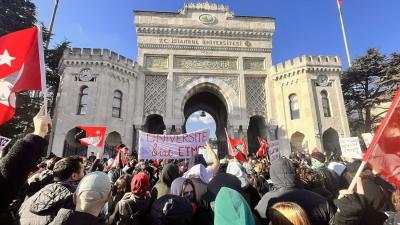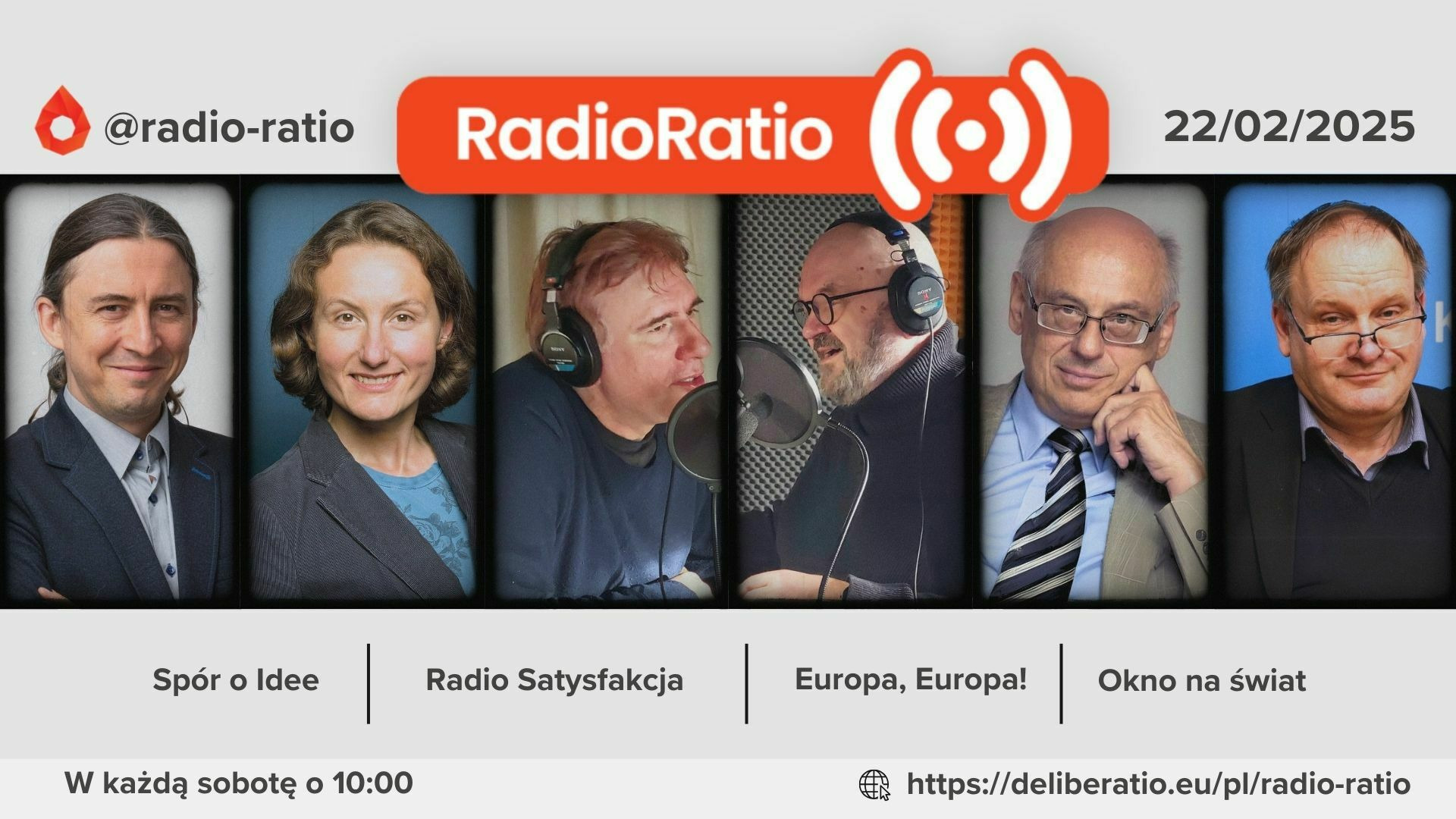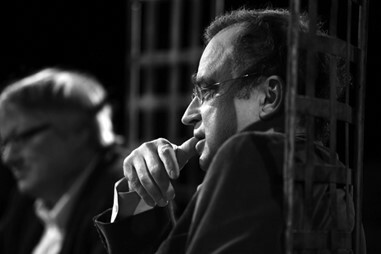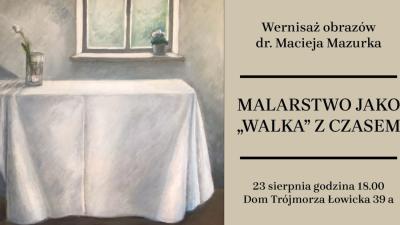Ongoing protests in Türkiye: “When midnight comes, everything shifts—from a night filled with hope to absolute chaos”
Since March 19, 2025, Turkey has been rocked by protests after the arrest of Istanbul Mayor Ekrem İmamoğlu and over 100 opposition members. Yet, the protests are not solely about the mayor. With more than 1,900 people arrested, anger and resistance are spreading. We spoke with a student (Ayça) from Istanbul University who is on the front lines, sharing what it feels like to be part of the movement—and the harsh realities protesters face every night.
Why do you believe the timeline of events surrounding İmamoğlu political rise and the actions against him were strategically timed?
Ayça: İmamoğlu has won three elections in five years, so [Erdoğan] knows he's going to lose. That’s why all this happened right after İmamoğlu announced his intention to run for president in 2028. Just four days later, he was stripped of his position as Beylikdüzü’s mayor—a post he held before becoming mayor of Istanbul—and soon after, arrested on charges of terrorism and corruption. Then, Istanbul University, where I’m a student, revoked his diploma, claiming he transferred from a lower grade status and shouldn’t have been accepted. But they’re forgetting that at that time there was no rule requiring a certain grade to transfer. You could apply, and if accepted, you could transfer. There are photos of İmamoğlu at the university and students who studied with him. So, there’s solid proof he was there and graduated.
Another dilemma is that Erdoğan claims to have graduated from Marmara University, a respected school in Istanbul, but there’s no photographic evidence. We’ve seen the diploma, but it seems off—no students say they studied with him, and no professors have confirmed he was their student. And at this point, it’s not just about İmamoğlu.
What impact has Erdoğan's leadership had on your generation and the general mood of the country?
Erdoğan has been in power for over 20 years—he’s been president since I was born in 2002. Whenever he claims our country’s problems are caused by outsiders, not his mistakes, these excuses just keep piling up. As a citizen, growing from childhood to now a young adult, I’ve seen a constant decline in our situation. And it’s not just about İmamoğlu. As students, our protests are about proving a point.
Why do you think people protest in Türkiye, and why is it important to see beyond the İmamoğlu narrative?
There have been a lot of legal problems in the country. The government uses the media, legal system, and its power against citizens, and everything works in their favor. Their supporters and the wealthy benefit, while the rest feel forced to leave just to have a basic life.
Even my sister left. She graduated from a prestigious university as an engineer but didn’t want to stay in a rigged system, so she became a cake maker. I’m not judging—everyone deserves to do what they love—but she left for peace of mind, to avoid worrying about the government, fearing a tweet could ruin her future or even land her in jail. It wasn’t just about İmamoğlu —it was a scream for justice.
Can you describe the emotional and physical risks of participating in protests, and what precautions do protesters take?
At first, I was scared to join because I didn’t have a mask, but there were a lot of people. Around 4 or 5 PM, WhatsApp groups started popping up with chat links, but I wasn’t sure which to trust. It was overwhelming—so much news, so much happening at once. Then, universities got involved, planning what to do and spreading those plans on social media. One university would organize, then share with others, and people in WhatsApp groups—built with strangers, carefully avoiding anyone connected to the police—would spread the word.
By 8 or 9 PM, when I was home packing, I’d gather water, milk, lemon, and solutions for pepper spray, plus cream for plastic bullet wounds. I’d pack synthetic masks from the pandemic, layer a T-shirt or any fabric over my face to stay anonymous and block pepper spray, and sometimes use swimming goggles because they work well. If you had the budget, you could get a military-grade gas mask. We all wore black to stay unrecognizable. I even removed rosettes from my backpack—some were from university clubs—just in case.
A power bank is always good to have. We plan to meet somewhere before heading out alone because, one, you can lose your friends in the protest, and two, you need to recognize them beforehand. We usually meet at least a kilometer away from the planned area, in a group of 10 or 15, and set checkpoints. If someone gets too close to the police and gets arrested, we immediately notify each other, remove them from the WhatsApp group, delete all messages, bomb the chat, and create a new one.
There are rules in place, but when you're there, fear kicks in—for your friends, yourself, your parents. What if something happens? What if you end up in a police station, having to call your mom, dad, or a lawyer while they try to frame you for terrorism? It’s terrifying. But when you arrive, it’s overwhelming—so many emotions at once. You feel relieved that you’re not alone in this, that others are going through the same struggles. Then anger kicks in—toward the police, toward the government. But then you remember, the police are there because they have to be—if they weren’t, they wouldn’t get paid. They’re just doing their job.
And then, sometimes when Özgür Özel (leader of opposition party – editor’s note) speaks, it doesn’t even feel like a protest anymore—it feels like his own election campaign. That annoys me the most, to be honest, because I feel like he’s using the young Gen Z platform for his own benefit, whether for economic policies or just political gain. But it’s politics, so it’s expected.
You jump, you shout, you feel the energy. But then, when midnight comes, everything shifts—from a night filled with hope to absolute chaos. The police start attacking. And when I say attacking, that word doesn’t even do justice to what happens. They use brutal force against people who are just holding Turkish flags, holding signs with slogans—people who just want their voices to be heard.
I’ve learned that when the police show up, they already have a set number of arrests they need to make: “You’re going to arrest 300 university students today,” or 350, or 400. And then, beyond that, they go after the so-called "problematic" ones—the ones shouting the loudest, the ones motivating others, the ones who have become symbols, like Pikachu and others. They target the faces of the movement.
You try to escape, rushing toward the metro station, but if the police get you, they tackle you to the ground, beat you up, leave you bruised. They spray pepper spray directly into your face from just five centimeters away, so your eyes burn so badly that you can’t even walk straight. It’s like you’re drunk, but instead of alcohol, it’s pain—your head pounding, your eyes streaming, your breath ragged. You cry, trying to see, trying to rinse it out with whatever solution you can find.
Some students light small fires to help counteract the gas. If you don’t have anything to help yourself, you run toward them. Sometimes there are ambulances on standby—not to treat protesters, but to make sure people don’t actually die.
And when you finally make it home, you feel miserable. But then you realize—what else can I do? There’s nothing else I can do except wait for the elections. But if I wait for the elections, everything will be forgotten again, just like it always is. For 20, 23 years, it’s been the same pattern—something terrible happens, people get angry, and then it fades away. And then, you wake up to news like: “Another woman was murdered.” “A fire broke out, and they couldn’t put it out in time because regulations weren’t followed.” Nothing changes.
But then, your friends remind you why you started, and you get up. You pack your bag again, hoping this time you won’t get arrested. You go back out, and for a few hours, you feel hope again—for your country’s future.











Comments (0)